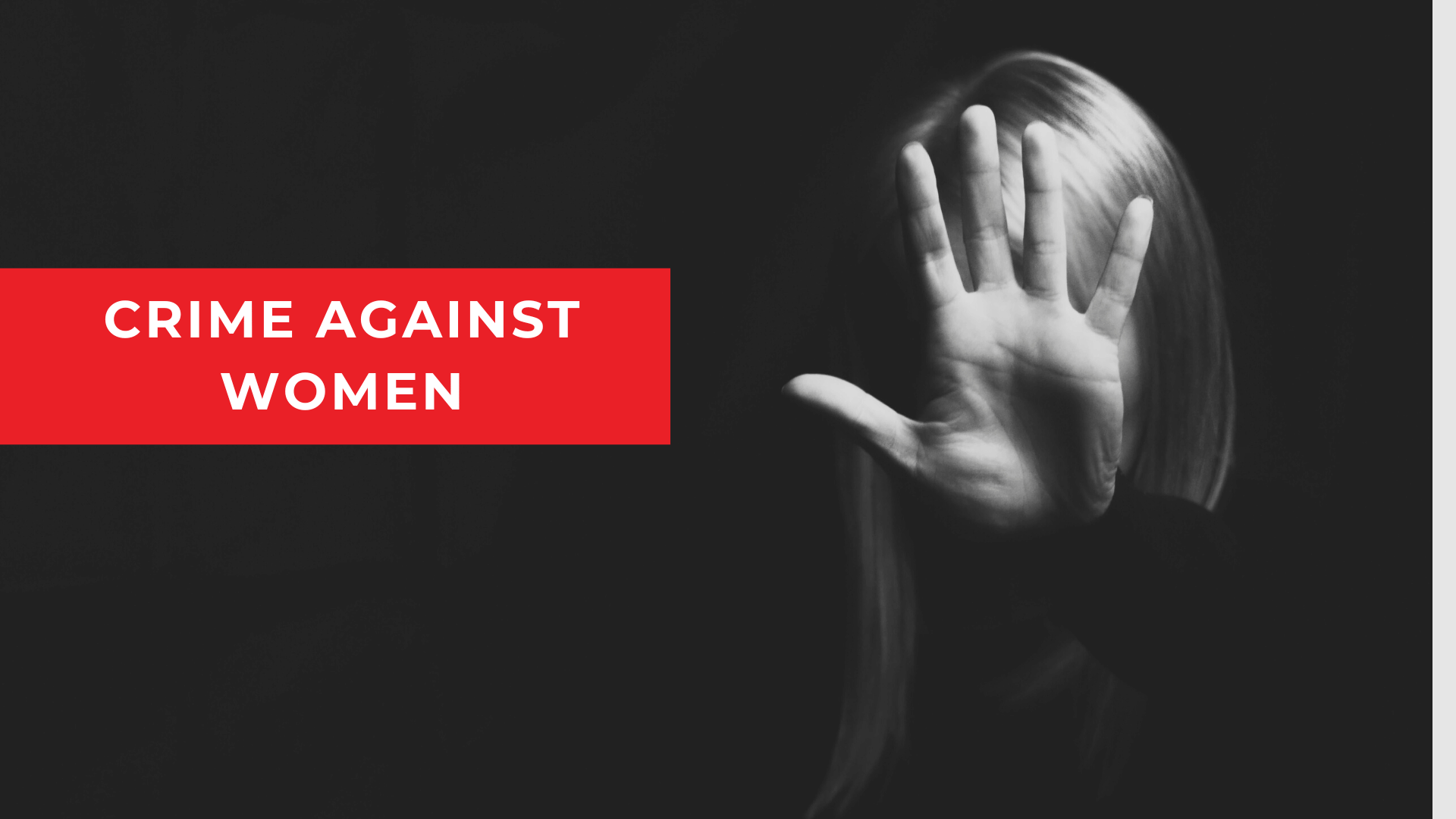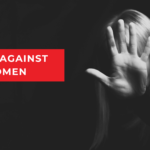Crime Against Women: A Legal Exploration Through IPC Sections
Crimes against women are a critical concern globally, and legal frameworks play a pivotal role in addressing and preventing such offenses. This article delves into the Indian Penal Code (IPC) sections that specifically govern crimes against women, providing a comprehensive overview.
Understanding Various Offenses and Legal Provisions
Crimes against women encompass a wide spectrum of offenses, each posing unique challenges and requiring distinct legal interventions. Let’s delve into the intricacies of these crimes and the corresponding legal provisions.
1. Kidnapping
Kidnapping, whether from India or lawful guardianship, is addressed under Section 360 of the IPC. Offenders can face imprisonment of up to 7 years and fines. Additionally, Section 366 of the IPC deals with compelling marriage and forceful sexual relations, imposing penalties of imprisonment up to 10 years and fines.
In the Thakorlal D. Vadgama v. State of Gujarat case, the appellant enticed Mohini, a minor, through promises and gifts. Despite Mohini’s consent, the court held that the appellant’s actions, including kidnapping her, were against the law. The court emphasized the need to protect minors from being lured into illicit activities and recognized the rights of guardians. Mohini’s acceptance to go with the appellant and engage in intercourse did not absolve him of the offense under Section 366 of the IPC.
2. Chain Snatching:
Primarily a form of theft targeting women, chain snatching falls under the purview of Section 378 of the IPC.
3. Rape:
A pervasive crime against women, rape takes various forms, including the rape of a minor girl, marital rape, and gang rape. Penalties for these offenses range from imprisonment up to 7 years to life imprisonment, coupled with fines.
In the Bhupinder Singh v. Union Territory of Chandigarh case, the accused and the victim, both bank employees, got married. When the victim discovered the accused’s prior marriage, she filed a complaint. The Punjab & Haryana High Court found the accused guilty of rape under Section 376, emphasizing that the victim’s consent was based on the belief he was her legal husband.
4. Gang Rape
Section 376D prescribes punishment for gang rape. When a woman is raped by multiple individuals acting with a common intention, each offender is liable for rape and can be sentenced to rigorous imprisonment for a minimum of twenty years, extendable to life imprisonment, along with a fine.
In the Priya Patel v. State of M.P. case, the appellant’s husband raped the prosecutrix while the appellant (wife) was present. The appellant challenged the charge under Section 376(2)(g), arguing that a woman cannot commit rape and, therefore, cannot be charged with ‘gang rape.’ The court ruled that a woman lacks the intention to commit rape, absolving the appellant from prosecution under Section 376(2)(g).
5. Outraging the Modesty of Women
Section 354 of the IPC addresses the offense of molestation, involving the assault of a woman with the intent to outrage her modesty. The section aims to shield women from indecent and derogatory behavior that violates their modesty, impacting both the individual and societal morals. An individual convicted of using criminal force on a woman with the intent to outrage her modesty faces imprisonment for a minimum of one year, extendable to five years, along with a fine.
In the case of State of Punjab v. Major Singh, the accused, caused injuries to a child’s vagina. The court held the accused liable for outraging the modesty of the child under Section 354, IPC, emphasizing that a woman’s modesty, regardless of age or mental capacity, can be outraged.
6. Insulting the Modesty of Women
Section 509 covers acts intended to insult the modesty of a woman, not necessarily involving physical force. This includes any word, gesture, act, or intrusion into a woman’s privacy, often referred to as ‘Eve Teasing.’ Offenders under Section 509 face simple imprisonment up to three years along with a fine.
In Rupan Bajaj & Another vs. KPS Gill, the Supreme Court highlighted the significance of protecting the modesty of women in various settings, including educational institutions and workplaces. The court emphasized the importance of safeguarding women and girl children from distressing experiences in crowded public spaces like buses, metros, and trains.
7. Domestic Violence:
Acts such as beating, rape, and forced sex are categorized as domestic violence. Section 498A of the Domestic Violence Act, 2005 stipulates a punishment of one year and fines for perpetrators.
8. Honor Killing:
Crimes committed in the name of family or community honor fall under scrutiny. Such actions are violative of fundamental rights and may result in legal consequences.
9. Cyber Crimes:
In the realm of technology, cyber crimes against women, such as bullying and harassment, are prevalent. Legal measures under the Information Technology Act, 2000, impose punishments ranging from imprisonment up to 3 years to life imprisonment and fines. Further Section 354A, 354C and 354D punishes such crimes.
10. Dowry Deaths:
Section 304B addresses dowry deaths and bride burning, highlighting the gravity of these acts in Indian society. It defines dowry death and prescribes a punishment not less than seven years, extendable to life imprisonment.
In the Kamesh Panjiyar vs State of Bihar case, the Supreme Court upheld a session court decision, ruling a husband’s demand for additional dowry and subsequent abuse as a factor in the wife’s death. The court clarified that proving cruelty before the woman’s death is adequate for establishing dowry death under Section 304B. The husband received a 10-year prison sentence.
11. Cruelty by Husband or Relatives
IPC Section 498A addresses cruelty by husbands or relatives, aiming to penalize those who subject a woman to torture or harassment to fulfill unlawful demands. This provision introduces a new dimension to cruelty in the context of matrimonial relief. The section specifies the types of cruelty it encompasses. Conviction under Section 498A can result in imprisonment for up to three years along with a fine.
12. Acid Attacks:
Despite regulations, acid attacks continue to threaten women. Sections 326A and 326B of the IPC prescribe imprisonment from up to 7 years to life, along with fines.
In the 2015 case of Lakshmi v. Union of India, a 16-year-old named Lakshmi survived an acid attack stemming from a rejected marriage proposal. Taking her fight to the Supreme Court in 2006, Lakshmi sought compensation and pushed for legal changes, particularly advocating for a ban on open acid sales. The Supreme Court ruled in her favor, leading to regulations requiring detailed records for chemical purchases and a government ID for buyers. This landmark decision also prompted the Acid Attack and Rehabilitation of Acid Attack Victims Bill in 2017, addressing acid supply control and victim rehabilitation.
13. Voyeurism:
It is defined in Section 354C of the IPC, emerged after the Nirbhaya Rape Case in 2012. It involves observing or capturing images of a woman engaged in a private act, with a separate provision for disseminating or spreading such images. The first offense carries a punishment of imprisonment ranging from one to three years, along with a fine. The second offense is more severe, punishable with imprisonment from three to seven years, along with a fine. The accused must be male, engage in watching or capturing the image, and the woman involved must be participating in a private act with the expectation of privacy.
14.Stalking:
Stalking, involving the breach of women’s privacy through unwanted attention, attracts penalties ranging from 3 to 5 years of imprisonment and fines.
In 2016, the Bombay High Court, in the case of Shri Deu Baju Bodake v. The State of Maharashtra, examined a suicide case where a woman attributed her decision to constant harassment and stalking by the accused. The accused persistently stalked her at work and pressured her for marriage. The High Court ruled that charges under Section 354D should have been included along with the abetment to suicide charge.
15. Women Trafficking:
A heinous crime involving various modes and purposes, women trafficking is addressed under Sections 370, 372, and 373 of the IPC. Penalties range from 3 years to life imprisonment, accompanied by fines.
Conclusion
Concluding with an emphasis on upholding women’s rights within the legal framework, recognizing the significance of the discussed IPC sections. Advocacy, awareness, and stringent implementation of these provisions are essential for fostering a society free from crimes against women.










